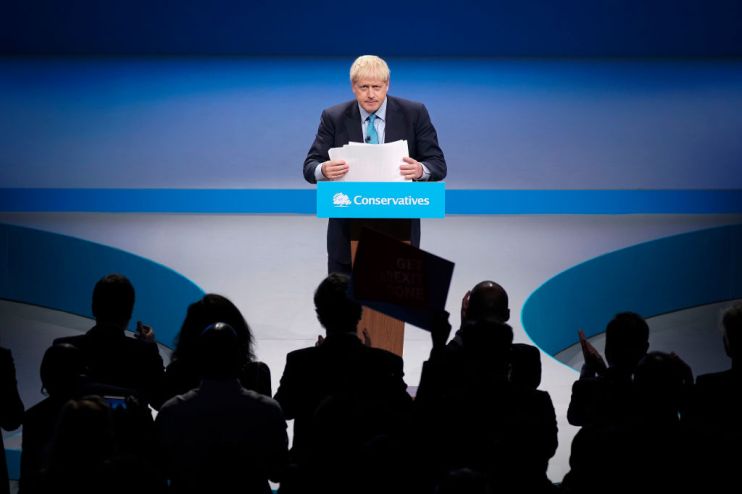Boris can talk a good pro-market game, but matching policies are yet to follow

This government, unlike governments before it, is not afraid to announce its pro-market and pro-enterprise philosophy.
Boris Johnson’s declaration of support for capitalism on stage at the Conservative party conference is not exactly the stuff of breaking news headlines.
But while it may not be newsworthy, it is certainly noteworthy, as it represents a huge contrast from the Theresa May era, which (to its detriment) took a much icier approach to market mechanisms.
While May was forced to roll back her attack on “untrammeled free markets” and make the case for capitalism in her conference speech in 2017 (after a woeful showing in the General Election that summer) Johnson has gone for the reverse approach, laying his free-market cards out on the table before going to the public to try to secure an electoral mandate.
This difference in attitude and perspective matters.
Capitalism is not a begrudged fallback plan, but rather upheld as the best system on record for eradicating poverty, boosting prosperity, and sustaining peace.
However, while the Prime Minister certainly paid lip service to the role of markets, the policy announcements to reflect this did not obviously follow.
Between the party conference announcements this week and his leadership promises over the summer, the Prime Minister has pledged tens of billions of pounds more in public spending.
That’s in addition to the chancellor announcing in the spending round that every department will see a day-to-day spending increase that is in line with inflation.
To do this in a fiscally responsible manner, the government either needs to hike taxes or boost growth to bring in the extra tax revenue to pay for additional services.
Johnson has made clear that he’ll go for the latter, but he potentially compromised his own plans by making other announcements that could actually hamper growth, including an “infrastructure revolution” that seems rooted in state planning, and a big boost to the National Living Wage which – when imposed by politicians and not the evidence-based Low Pay Commission – risks burdening business and suppressing job growth.
While the Prime Minister’s instincts on the merits of capitalism hit the mark, listeners-on were sorely lacking concrete policy plans to reduce the tax burden, which hovers at a near 50-year high, and to roll back red tape, allowing market mechanisms to flourish properly.
With Brexit dominating the full agenda, a hung parliament unable to make headway on anything, and uncertainty looming about the UK’s future over the next four weeks, now is perhaps not the time to make pledges in every area of domestic policy.
But the prospect of a battle of ideologies has been brewing for a while now. The Labour party has not only embraced socialism as its mantra, but also committed to firm policy ideas to complement its set of beliefs.
Now, after years of to-ing and fro-ing, the Conservative party is adopting rhetoric that clearly presents the market-based alternative to the increasingly popular offer of more state intervention. But the policies will have to follow – and soon – for a proper debate to play out.
Main image credit: Getty